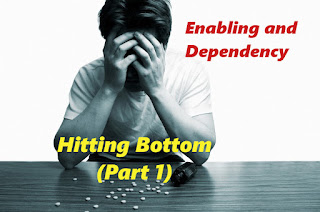Before coming to McClellandtown Presbyterian Church, I had never served a church with its own cemetery. McClellandtown's cemetery serves both as a church and community cemetery. To church members, it is called the McClellandtown Presbyterian Church Cemetery and to locals it is called “Church Hill Cemetery.” I soon began to consider the potential ministry and mission opportunities. Our cemetery manager and church member, Bo McCahill helped me a great deal, particularly in his conviction that God had called him to serve families as they lay their loved ones to rest in the cemetery. I am still considering and praying about the mission opportunities which may await us.
The church Session recognizing the role our cemetery plays in the community has committed itself to forming plans for the cemetery by purchasing additional acreage for future expansion needs for the next 150 years. They are also making plans for constructing a columbarium considering the increasing practice of cremations.
The cemetery is filled with history and personal stories. Between May and September, hundreds of families from around the country visit the grave sites. They come with their stories of lives lived well and family histories which began here. I often get the honor to hear their stories as they stop in my office and I can assist them make the connection between their family history and their faith. I am often called upon to conduct graveside committal services because the person had lived most of their life in another state, but wished to be buried in the place where they first came to life. Their families share with me their stories and how their lives intersected to others buried here.
We get to honor veterans buried in our cemetery and tell the stories of a few. We have a Revolutionary War soldier who served as the personal secretary to George Washington and had earlier served with General Anthony Wayne. Many of the early settlers in this area of Pennsylvania were veterans of the American Revolution who were given land grants due to their service in the Army. Another soldier from WWII who died in combat while serving in Italy with the Devil's Brigade. In 2015, the Devil's Brigade received the Congressional Gold Metal for their service. There was also a movie in the 1950's of the same name “Devil's Brigade” made about the mission of this group during WWII.
The cemetery is filled with history and personal stories. Between May and September, hundreds of families from around the country visit the grave sites. They come with their stories of lives lived well and family histories which began here. I often get the honor to hear their stories as they stop in my office and I can assist them make the connection between their family history and their faith. I am often called upon to conduct graveside committal services because the person had lived most of their life in another state, but wished to be buried in the place where they first came to life. Their families share with me their stories and how their lives intersected to others buried here.
We get to honor veterans buried in our cemetery and tell the stories of a few. We have a Revolutionary War soldier who served as the personal secretary to George Washington and had earlier served with General Anthony Wayne. Many of the early settlers in this area of Pennsylvania were veterans of the American Revolution who were given land grants due to their service in the Army. Another soldier from WWII who died in combat while serving in Italy with the Devil's Brigade. In 2015, the Devil's Brigade received the Congressional Gold Metal for their service. There was also a movie in the 1950's of the same name “Devil's Brigade” made about the mission of this group during WWII.
We also have veterans from most of the major conflicts which the U.S. has been involved since its beginning, the War of 1812, Grand Army of the Republic in the American Civil War, Spanish-American War, WWI and WWII, Korean, and Vietnam. Sadly the stories of many of these individuals are probably lost to time, but I have been attempting to save and collect as many stories as I can uncover.
The local high school JROTC comes each May helping us prepare the cemetery for Memorial Day weekend and place American flags on each veterans grave. The congregation after worship each Memorial Day weekend joins the local American Legion and VFW as they conduct a ceremony in honor of all those buried here and elsewhere who gave themselves in services to their country. We photograph and video both events and these posts receive the most views and activity on our Facebook page than anything else.
The local high school JROTC comes each May helping us prepare the cemetery for Memorial Day weekend and place American flags on each veterans grave. The congregation after worship each Memorial Day weekend joins the local American Legion and VFW as they conduct a ceremony in honor of all those buried here and elsewhere who gave themselves in services to their country. We photograph and video both events and these posts receive the most views and activity on our Facebook page than anything else.
Many churches within the presbytery has cemeteries, each providing its own witness to their communities. Please share your ministry ideas, experiences and ministries on church cemeteries in the comments section.
























